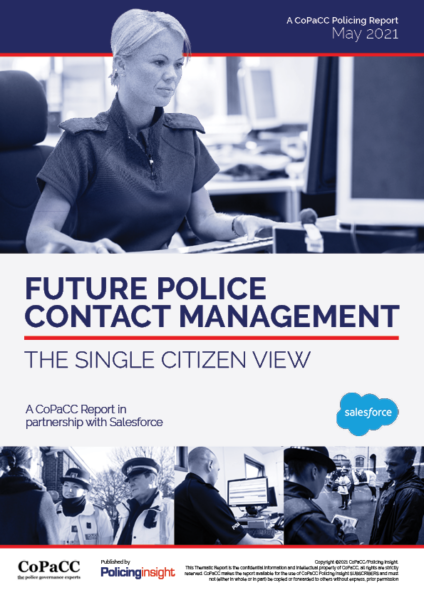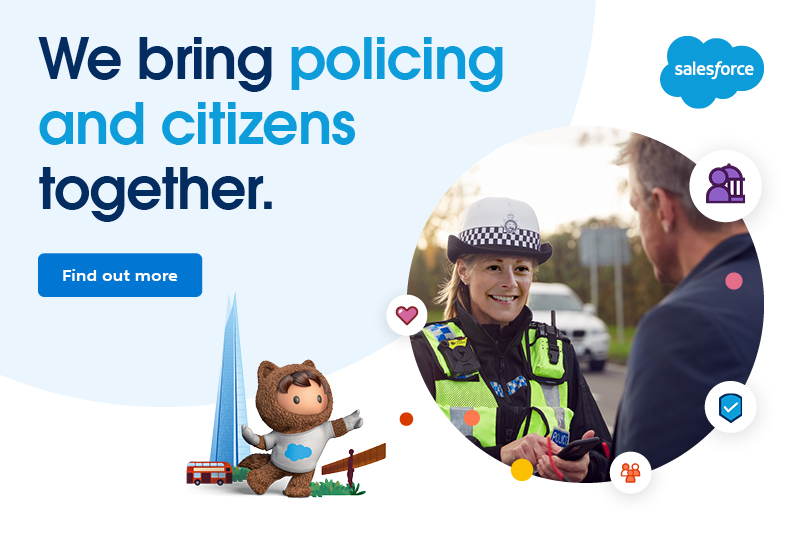The 2021/22 Police effectiveness, efficiency and legitimacy (PEEL) assessments have been published in 22 of the 43 Home Office police forces to date. There are some exceptional performances across policing, but also some areas to improve.
‘Responding to the public’ is good in 5 of the 23 forces, with the other 17 assessed as adequate, requiring improvement or inadequate.
A lack of communication between a Police Force and a victim of crime can create systemic issues for UK policing including high volumes of calls from members of the public asking for an update to their case.
Whilst Contact Management demand in policing varies with seasonality, there has been a continued reduction in 101 telephony demand over the last decade. Policing is also dispatching to similar numbers of Grade 1 incidents, which highlights the increases in 999 telephony demand is not caused by increases in actual emergencies, instead, failure demand is having the greatest impact on Contact Management performance and service delivery.
Failure demand is caused when members of the public have to call back to get more information, which could have been provided first time. Without an effective omni-channel strategy, failure demand can saturate all contact channels (including calls, live chat, emails or online forms) and make it difficult to identify and prioritise value demand. Furthermore, the majority of this failure demand is invisible to forces because it goes unlogged.
This presents a logistical challenge to police forces as each call has to be answered, regardless of 999 or 101 channel. This creates high wait times, high abandonment rates, reduced service quality to the public and is more expensive. Police forces need to consider how to break this cycle without simply deploying more resources. This is symptomatic of a problem versus resolution challenge, but this is where our market leading technology can help.
By bringing together leading academic thinking with best-in-class technology, Salesforce can address the challenge of call demand using its Marketing Cloud capability that proactively supports victims on their channel of choice and across key partners, including Victim Services, Witness Care, CPS and HM Courts.
Another theme from the PEEL assessments is ‘Providing a Service to the Victims of Crime’.
In most cases the feedback was that forces took too long to answer non-emergency calls and were unable to spot repeat victims of crime, which links back to the previous point about failure demand and unnecessary calls into contact management.
A lack of communication between a Police Force and a victim of crime can create systemic issues for UK policing including high volumes of calls from members of the public asking for an update to their case.
More widely, this also supports three key aims of the Policing Vision 2025, notably to make it easier for the police and the public to communicate with each other, improve investigations and transfer all information with the Criminal Justice System digitally (NPCC, 2020).
By bringing together leading academic thinking with best-in-class technology, Salesforce can address the challenge of call demand using its Marketing Cloud capability that proactively supports victims on their channel of choice and across key partners, including Victim Services, Witness Care, CPS and HM Courts.
The key challenges our Police customers are aiming to address include:
- Making sure victims receive the services they are entitled for their well-being – outlined in ‘The Victim Code’
- Reducing the traumatising impact of victims repeating their story multiple times.
- Creating efficiencies for Contact Management Centre’s and police officers through call deflection thus helping police resource to spend more time doing value work.
- Providing clear information on how the victim’s personal data will be shared between agencies and support services with clear opt-in/out opportunity.
- Creating real time feedback loops by gathering feedback and metrics from victims, police officers and support agencies, which helps to improve trust and confidence in policing.
Salesforce can equip police forces with the appropriate technology and tools to automate and personalise their communications to victims whilst listening to individual needs, to help victims of crime and non-crime recover and move forward with rebuilding their lives.
Finally, the Salesforce solution can help identify which method of digital contact works for victims of crime and how best to apply digital communication to help deliver effective, efficient and legitimate policing services.
For further information visit salesforce.com/uk/publicsector and ask to be contacted by a member of our policing team.
For more insights from key stakeholders driving development in police contact, please click here to download the CoPaCC Future Police Contact Management: The Single Citizen View Report
 The report is FREE to download – just log in to your Policing Insight account or register a new free account.
The report is FREE to download – just log in to your Policing Insight account or register a new free account.
This is an independent CoPaCC thematic report, published in partnership with Salesforce, examining the police contact management landscape in the wake of 2020’s HMICFRS’s A Call for help report, the publication of the NPCC’s National Contact Management Strategy (NCMS) in 2019, and 12 months of COVID-19 lockdowns and legislation.
The report features FoI data focusing on forces’ 999 and 101 data, digital contact, use of Single Online Home (the national digital platform) and social media. It also includes interviews with police contact centre managers, major stakeholders and national leads to identify the major emerging trends as well as challenges and opportunities.
This report was produced in partnership with Salesforce whose single platform approach enables Police Forces to consolidate citizen touch points and ensure that all information related to a case is presented in a single view.
Police Force systems can also connect with the Salesforce platform – using any one of their integration solutions – to automate the easy exchange of data, better inform decision making at public contact, and share the right information with Officers.
See www.salesforce.com/uk/publicsector for more information



